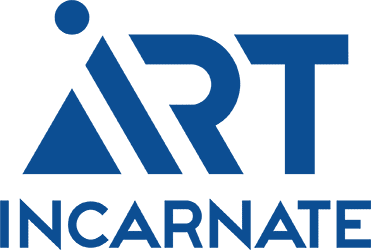PDF version here:
🔗 https://artincarnate.com/wp-content/uploads/2025/10/For-Immediate-Release-Tradigital-Luxe-Fine-Art.pdf
FOR IMMEDIATE RELEASE
Jason M. Allen and Alta.art Announce the Elegraph™ Launch of Théâtre D’opéra Spatial, a Masterwork Blending Classical Artistry with the Alta Process
DENVER, CO — October 16, 2025
In a groundbreaking collaboration between Art Incarnate and Alta.art, Théâtre D’opéra Spatial—authored by Colorado digital creator Jason M. Allen—ushers in a new era of fine art. This is the world’s first-ever AI-native fine art piece produced as an Elegraph™ through the Alta Process, a proprietary technique that translates digital creation into a physical artifact indistinguishable in presence and depth from the great oil paintings of history. The work will be officially released on Monday, October 20, 2025 on both Alta.art and Art Incarnate’s websites, allowing collectors to acquire this fusion of old-world craftsmanship and cutting-edge innovation Allen calls Tradigital Luxe™.
At first glance, the Elegraph™ print of Théâtre D’opéra Spatial evokes the unmistakable gravitas of a hand-painted masterwork one might find in a 19th-century oil painting. Its textures, lighting, brushwork, and composition, all recalling the timeless mastery of the European salons. Yet beneath its classical surface lies something unprecedented: this piece was born entirely in the digital realm, created through artificial intelligence, and then transfigured into the physical world via the Alta Process, which leverages Arius Technology’s proprietary color-depth Elegraph™ printing system.
“So many have said I’m not an artist and this isn’t art,” says Allen. “Being called an artist or not doesn’t concern me, but the work and my expression of it do. I asked myself, what could make this undeniably art? What if I could create Théâtre D’opéra Spatial as if it were physically created by hand? Not actually, of course, but what if I could achieve that using technology? Surely that would be the answer.
The Alta Process allowed me to prove that art created with AI can also carry every hallmark of classical artistry. That’s why I call this Art 2.0 — it’s the transfiguration of human expression rising in this new technological age of creativity.
People said anyone could copy my work online, sell it, and I would have no recourse. They’re not technically wrong. If we win my case, copyright will apply retroactively. Regardless, they’ll never reproduce the Elegraph™. This artifact is singular. It’s real. It’s the answer to the petulant idea that this isn’t art. Long live Art 2.0.”
Unlike the traditional Alta methodology which begins with a physical painting and translates it into digital form, this production of Théâtre D’opéra Spatial inverts that sequence. It begins as a purely digital composition and materializes into a singular artifact of extraordinary presence, as if painted by hand. This reversal marks a historic first for the Alta Process and for fine art itself. In doing so, Allen completes a full circle—bringing technology not as an imitator of art, but undeniably as its latest instrument.
A Work at the Center of a Landmark Legal and Cultural Moment
Théâtre D’opéra Spatial is not only an artistic milestone; it sits at the heart of a historic legal case now before the United States District Court for the District of Colorado. Allen’s case, represented by Counsel Professor Ryan Abbott, challenges the U.S. Copyright Office’s refusal to register AI-assisted works, asserting that the agency has exceeded its authority under federal law.
Abbott’s motion for summary judgment, filed on August 25, 2025, contends that the Office’s rejection of Allen’s registration violates both the Copyright Act and longstanding Supreme Court precedent. The filing argues that by attempting to redefine the term “author” (a power reserved to Congress) the Copyright Office has acted beyond its lawful authority, effectively placing itself above judicial and legislative oversight.
Abbott argues that the Supreme Court has consistently held the definition of “author” to be broad, inclusive, and adaptable to new technologies. “More broadly, federal courts, including the Supreme Court, have consistently interpreted the Act to encourage the use of machine and computer technologies to promote the generation and dissemination of creative works,” Abbott writes in the motion for summary judgment. He contends that the Copyright Office’s current position improperly narrows that definition, creating an unconstitutional double standard for works created with modern tools.
Supporting this motion, Professor Edward Lee filed an amicus brief emphasizing that the Office’s so-called “traditional elements of authorship” have no grounding in any federal law or precedent. As Lee explains, this extra-statutory rule “is contrary to the Copyright Clause and the Supreme Court’s broad interpretation of “authors”—and the whole goal of promoting progress by incentivizing people’s creative activities to produce new works.”
Together, these filings underscore that the stakes of Théâtre D’opéra Spatial reach far beyond art—it is poised to reinforce what it means to be an “author” in the 21st century.
About the Partnership Between Art Incarnate and Alta.art
This collaboration unites Art Incarnate’s visionary exploration of AI-driven creativity with Alta.art’s world-leading physical realization of digital works. Through this partnership, Théâtre D’opéra Spatial debuts as the first fine-art release produced under the Alta Process™ from a natively digital origin, establishing a commercial and technological milestone in the convergence of art and machine intelligence.
About the Alta Process™ and the Tradigital Luxe™ Series
The Alta Process™—developed by Arius Technology’s Alta division—captures and reproduces artwork with sub-micron fidelity, translating digital and AI-generated compositions into dimensional, tactile fine art editions. The Tradigital Luxe™ series, debuting with Théâtre D’opéra Spatial, represents the world’s first AI-native fine art collection produced using this proprietary technology, merging Allen’s digitally conceived imagery with the physical presence of traditional oil painting.
Each edition in the series will include both Bespoke (30, Elegraph™ print and phygital NFT) and Limited (100, Elegraph™ print only) versions, complete with a serialized Alta Certificate of Authenticity—an innovation in provenance that establishes a new global benchmark for digital-era fine art.
About Jason M. Allen
Jason M. Allen is the founder of Art Incarnate, a Colorado-based art studio pioneering at the intersection of artificial intelligence and fine art. His works explore the relationship between man, machine, and meaning, combining classical compositional techniques with state-of-the-art digital creation tools. Théâtre D’opéra Spatial—winner of the 2022 Colorado State Fair Fine Arts Competition—has since become one of the most widely discussed works in the world, symbolizing both the promise and controversy of AI in the creative process.
Media Contact: jm*****@**********te.com
Discover Tradigital Luxe on Alta.art and Art Incarnate websites
Alta.art: https://alta.art/pages/jason-m-allen
Art Incarnate: https://artincarnate.com/theatre-dopera-spatial-art-print/
Ad Astra,
Jason M. Allen
Founder, Art Incarnate

